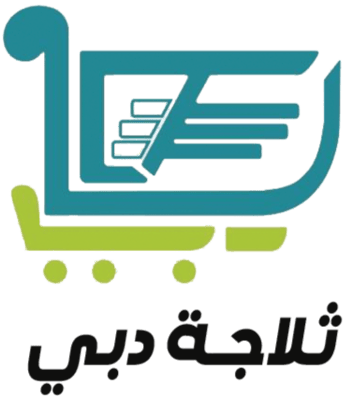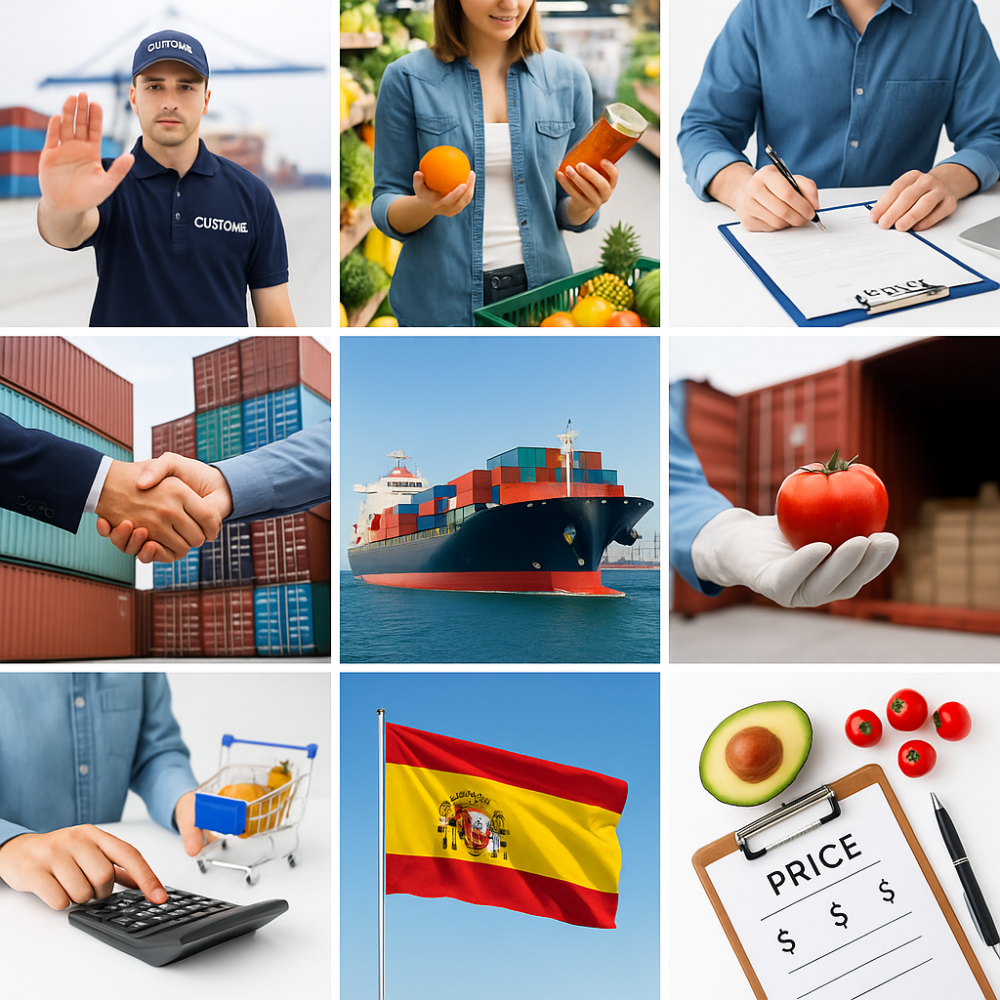
🌟 Welcome to the world of smart food commerce with Dubai Fridge Food Store! 🇸🇦
With the significant growth witnessed in the Saudi food sector , importing food products from abroad has become one of the most important pillars of modern trade, opening up substantial profit opportunities for investors and shop owners. 🏪
But success in this field does not depend solely on purchasing products; it requires a thorough knowledge of the steps, laws, and customs details that guarantee you a safe and profitable import.
At Dubai Refrigerator Food Store , we don't just sell; we share our expertise in the local and international food market to help you understand how to select the most in-demand products, ensure their quality, and avoid legal or customs obstacles that new importers may face. 📦
In this article, we will take you on a practical, step-by-step journey to discover:
📋 The best steps for importing food products from abroad to Saudi Arabia
💰 How to choose profitable food imports in 2025
📄 Licensing and registration requirements with the relevant authorities in the Kingdom
⚖️ Ways to reduce risks and ensure quality when importing in bulk
🌎 Major countries exporting food products to Saudi Arabia
🏠 And the secrets of starting a small food import business from home with the least possible capital!
Get ready to discover the secrets of international food trade and the fundamentals of profitable importing with Dubai Fridge Food Store , where we believe success begins with knowledge, planning, and quality . 🌐💼
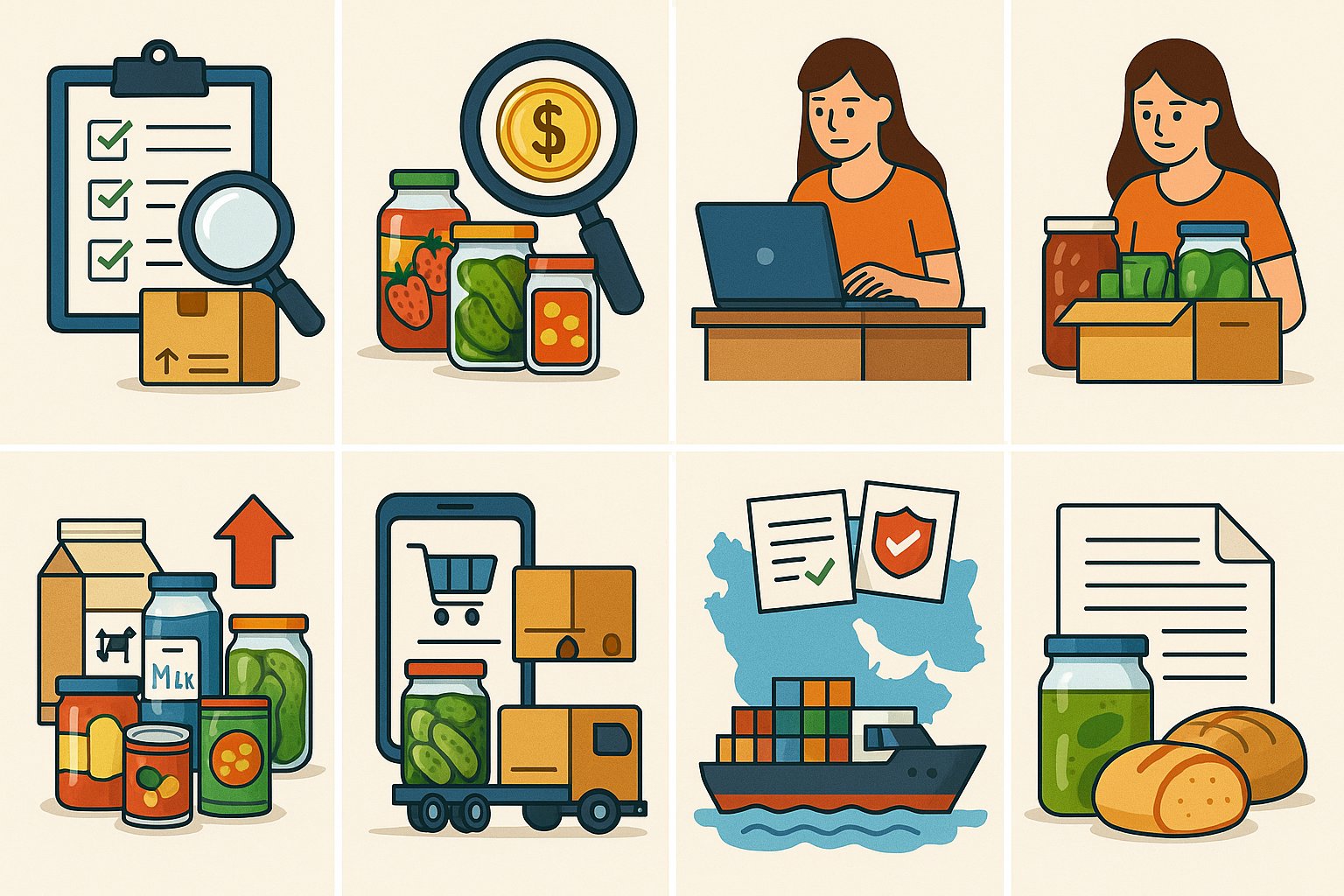
🇸🇦 A comprehensive guide on importing food products from abroad to Saudi Arabia for 2025 🌾
Saudi Arabia is experiencing tremendous growth in its food trade sector , driven by increasing demand for high-quality international products. With economic liberalization and Vision 2030, importing food from abroad into Saudi Arabia has become a golden opportunity for anyone seeking to build a profitable and sustainable business.
In this detailed article prepared by Dubai Refrigerator Store , we will take you step by step on the journey of importing food products, from product selection to business licensing, quality assurance and profitability.
🌾 What are the best steps for importing food products from abroad to Saudi Arabia?
A successful import journey begins with careful planning and following the legal and technical steps to ensure that goods enter the Saudi market easily.
🔹 First step: Studying the local market
Start by identifying the types of products needed in your area, such as rice, oil, canned goods, juices, or organic products.
🔹 Step Two: Choosing a Reliable Supplier
Look for reputable export companies in leading countries such as India, Türkiye, or Malaysia. Ensure they adhere to Saudi quality standards.
🔹 Step Three: Contracting and Shipping
After the agreement is reached, the shipping method (sea or air) and the required quantity are determined. It is preferable to start with a small trial shipment.
🔹 Step Four: Customs Clearance
Prepare the shipping documents such as the certificate of origin, commercial invoice, and packing list.
Make sure the product complies with the regulations of the Saudi Food and Drug Authority (SFDA) .
💡 Tip from Dubai Refrigerator Store:
Always start with products that are in constant demand, such as rice, sugar, dates, and juices, as they are the best-selling items in the Saudi market.
💰 How to choose profitable types of food to import in 2025?
Profitability depends not only on prices, but also on demand, competition, and ease of distribution .
✨ Here is a list of the most profitable food items:
- Premium packaged dates.
- Nuts and healthy grains.
- Organic and natural products.
- Vegetable oils and ghee.
- Imported canned goods and juices.
🪴 Tip from Dubai Refrigerator Store:
Observe the behavior of the Saudi consumer in 2025; there is a growing trend towards healthy products and foods free of preservatives .
🧾 What are the most important requirements for licensing the import of food products and registering with the relevant authorities?
Before you begin, you must have a food import license approved by the Ministry of Commerce and the Saudi Food and Drug Authority.
📋 Basic steps to obtain a license:
- Registration on the "Fasah" electronic platform of Saudi Customs.
- Opening a commercial register specifically for the activity of importing food.
- Registration in the Food and Drug Administration (SFDA) system.
- Obtain a product conformity certificate before shipping.
🔒 Important information:
Food shipments that are not pre-registered in the Authority's system or that do not carry food labels translated into Arabic will be rejected.
💼 Dubai Refrigerator Store reminds you of the importance of dealing with approved shipping companies to ensure full compliance with clearance requirements.
⚖️ How to reduce risks when importing food products in bulk from abroad?
Importing is a profitable process, but it's not without risks such as delays, damage, or shipment rejection. Here are some key tips to minimize these risks:
🟢 Golden tips:
- Use clear, formal contracts that specify quality and specifications.
- Choose suppliers with a reliable reputation.
- Buy in moderate quantities at first to test the market.
- Use heat and moisture resistant packaging.
- Deal with shipping agents who have insurance against damage.
📦 Tip from Dubai Fridge:
It is preferable to adopt a quality control system as soon as the shipment arrives, before it is distributed to stores, to avoid any losses.
🌍 What are the main countries that export food products to Saudi Arabia?
The Saudi market relies on several countries to import various food products.
The most prominent of these countries are:
- India 🇮🇳: A major source of rice, pulses and spices.
- Turkey 🇹🇷: Famous for its sweets, canned goods and nuts.
- Egypt 🇪🇬: Exports pasta, juices and dried products.
- Jordan and Lebanon 🇯🇴🇱🇧: Two key sources of organic products and oils.
- Indonesia and Malaysia 🇮🇩🇲🇾: For vegetable oils and sugar.
🛒 Dubai Refrigerator Platform provides wholesale food shopping services to shops and distributors, offering high-quality products from these countries at competitive prices.
🧪 How can you ensure the quality of imported food products and avoid customs rejection?
Quality is the foundation of success in the food trade, and any small mistake could lead to the rejection of the entire shipment.
✅ To ensure acceptance by customs:
- Make sure the product conforms to FDA specifications.
- Obtain laboratory analysis reports from the exporting country.
- Make sure the nutrition label and nutritional values are clear.
- Store goods at appropriate temperatures.
🔍 Tip from Dubai Refrigerator Store:
It is preferable to deal with accredited laboratories to test samples before importing, in order to save time and avoid delays.
💡 What are the secrets to achieving significant savings and importing low-cost food products?
Reducing costs does not mean reducing quality, but rather smart import management .
🌱 The most important secrets to saving:
- Buy during seasons when prices are low.
- Negotiate for wholesale discounts.
- Combining shipments to reduce transportation costs.
- Choosing the cheapest ports for sea freight.
- Establish partnerships with local distributors to accelerate sales.
💰 From the experiences of Dubai Refrigerator Store:
Importing in bulk with several local traders reduces shipping costs by up to 25%.
🏠 How to start a small food import business “from home” with minimal capital?
If you are thinking of entering the market without major risks, you can start from home with a simple import business.
🪴 Your first steps:
- Choose one desired product such as coffee, dates, or natural herbs.
- Contact a reliable online supplier.
- Import small quantities to test the market.
- Use your online store or social media pages to sell products.
- Expand your business gradually after initial success.
📦 Great feature:
Dubai Refrigerator Store can be your ideal business partner for wholesale supply at competitive prices and logistical support for small retailers.
💬 Frequently Asked Questions (FAQ) section
❓ Do I need a commercial registration for personal importing?
Yes, even small businesses need a business registration to legally clear goods.
❓ How long is the expected delivery time for the food shipment?
It ranges from 15 to 45 days depending on the country of origin and the shipping method.
❓ Can I import chilled or frozen products?
Yes, provided that refrigerated containers are used and validity and refrigeration certificates are provided that conform to Saudi specifications.
❓ What are the best products to start a small business?
Rice, coffee, dates, and natural honey are among the most sought-after and profitable products in the Saudi market.
❓ Where can I buy wholesale food products within Saudi Arabia?
From Dubai Refrigerator Store , which offers a huge selection of food, beverages and cleaning products at wholesale prices with fast delivery to all cities.
🌟 Summary
Importing food products into Saudi Arabia is not just a trade, but a real investment opportunity for those who know the right way.
Start with a smart plan, choose the right supplier, focus on quality, and you will have a stable and profitable project.
🌾 Don't forget that success begins with a small step — and your first step starts with Dubai Refrigerator Store , which supports Saudi entrepreneurs with guaranteed food products, the best wholesale offers, and fast and safe delivery service 🚚🇸🇦
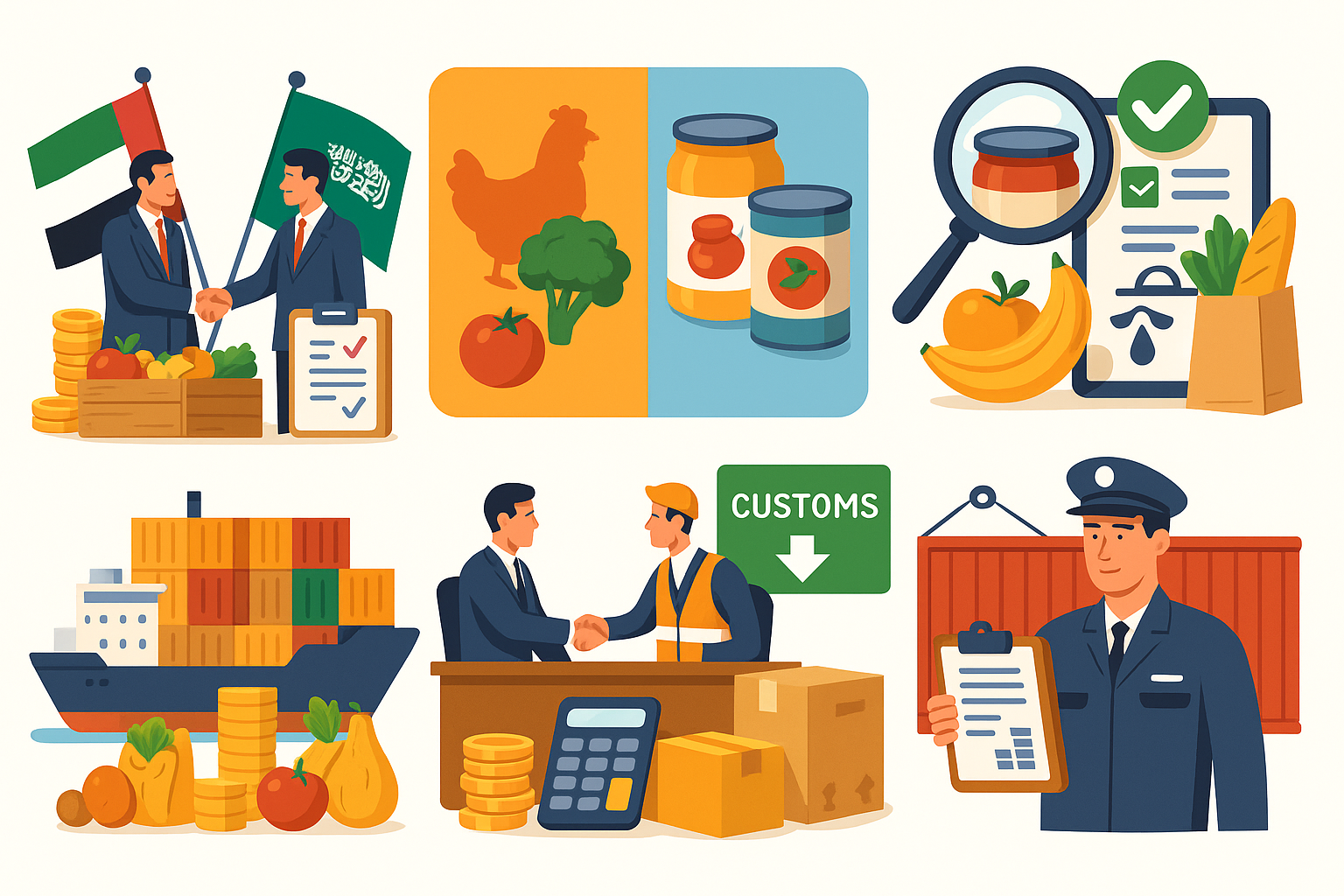
🌍 How to prepare for importing seasonal food products and storing them intelligently?
The demand for food imports to Saudi Arabia has increased in recent years, especially with the expansion of e-commerce and the rise in consumer awareness of quality and variety.
But success in this sector depends not only on choosing the right product, but also on smart planning for import and storage .
In this detailed guide from Dubai Refrigerator Store , we'll take you step-by-step through the secrets to success in your food import business, from choosing the right season to navigating Saudi customs and maximizing profitability. 🍱
🏗️ What are the steps for smart preparation for importing seasonal food products?
Seasonal importing means buying food during peak production or global sales periods, storing it, and selling it when demand is high.
This approach requires careful management that includes:
- Analyzing the local market to identify the most in-demand items for the upcoming season (such as dates in Ramadan or juices in the summer).
- Budgeting is needed to cover shipping, customs, and storage costs.
- Choosing a reliable supplier that offers high-quality food products that comply with Saudi specifications.
- Smart storage management in well-equipped warehouses ensures the safety of food products.
💡 Tip from Dubai Refrigerator Store:
Be sure to balance the quantity of goods purchased with their turnover rate, as excessive storage may lead to losses due to expiration or damage to goods.
⚖️ What are the legal steps for clearing imported food products through Saudi customs?
The process of clearing food products through Saudi customs requires strict adherence to official procedures.
Here are the basic steps:
- Register your company with the Saudi Food and Drug Authority (SFDA) .
- Obtain a product conformity certificate from the exporting country.
- Submit the certificate of origin and the original invoices .
- Samples are inspected at ports to ensure conformity to specifications.
- Customs duties are paid after assessment.
🚢 Remember that Saudi Customs emphasizes quality and food safety, and any error in documentation or packaging may lead to the rejection of the entire shipment .
💰 How do you assess the feasibility of a food import project and achieve profitability?
Before starting your project, it is important to conduct a comprehensive feasibility study for importing food products , including:
- Analysis of supply and demand within the Saudi market.
- Calculating shipping, storage, and distribution costs .
- Knowing the expected profit margin based on the type of product.
📦 For example, canned food products generate a steady and long-term profit, while fresh items such as vegetables and fruits need to be distributed quickly.
One of the most important tips offered by Dubai Refrigerator Store is to diversify the range of food products to ensure stable sales throughout the year.
🥫 What are the most common imported food products that need local packaging before being sold?
Some food products arrive in Saudi Arabia almost ready and need local packaging to suit consumer tastes.
These products include:
- Nuts and legumes.
- Rice and flour.
- Dates and spices.
- Dried herbs and cold drinks.
🛍️ This is where Dubai Refrigerator Store comes in, providing high-quality packaging and distribution services, while adhering to Saudi health standards to facilitate retail or wholesale sales.
🌿 How do you handle quality, packaging, and environmental standards when importing food products?
Quality and packaging are the face of the product , and they determine customer confidence.
Therefore, you should take into account:
- Use safe and hygienic packaging to prevent contamination or damage.
- Place a clear food label that includes the production and expiry dates and ingredients.
- Adhering to environmental standards in packaging reduces waste and improves brand image.
♻️ This aspect has become essential in the imported food trade in Saudi Arabia , especially with the government’s focus on sustainability.
📈 What are the growth expectations for food imports in Saudi Arabia in the coming years?
Reports indicate that the Saudi food market will experience annual growth exceeding 6% until 2030 , driven by several factors:
- Population increase.
- Online stores like Dubai Refrigerator Store are expanding.
- The growing demand for organic and healthy food.
🍽️ This makes the food import project a golden opportunity at the moment, especially for investors who focus on quality and innovation.
🚀 How can you leverage smart food imports to give your store a competitive edge?
The secret to excellence lies not only in price, but also in smart product selection and effective marketing .
You can achieve this by:
- Importing unique products that are not available locally.
- Using market trend data to predict future demand.
- Partnering with online stores like Dubai Refrigerator to distribute your products quickly throughout the Kingdom.
💡 The more diverse and responsive your store is to the market, the greater your chance of attracting new customers and achieving sustainable profits.
⚠️ What are the common mistakes that businessmen make when importing food products without conducting market research?
Even large investors can make costly mistakes, such as:
- Importing products that do not suit local tastes .
- Ignore the hidden transportation and storage costs .
- Relying on a single supplier without alternatives.
- Neglecting competitor analysis or digital marketing.
📊 Therefore, Dubai Refrigerator Store advises every new investor to start with a detailed plan that includes a comprehensive market study and a flexible distribution network that ensures the continuity of sales.
🧠 In conclusion: Importing food products is not an adventure, but a science based on business acumen.
If you are thinking of entering the field of food trade and import in Saudi Arabia , start with calculated steps based on analysis, study and planning, not impulsiveness.
Be aware of the laws, monitor global trends, and integrate importing with e-commerce to increase sales.
And don't forget that Dubai Refrigerator Store is your ideal partner for providing you with high-quality food products, along with distribution, storage, and packaging services that will enhance the efficiency of your project in the Saudi market. 🇸🇦
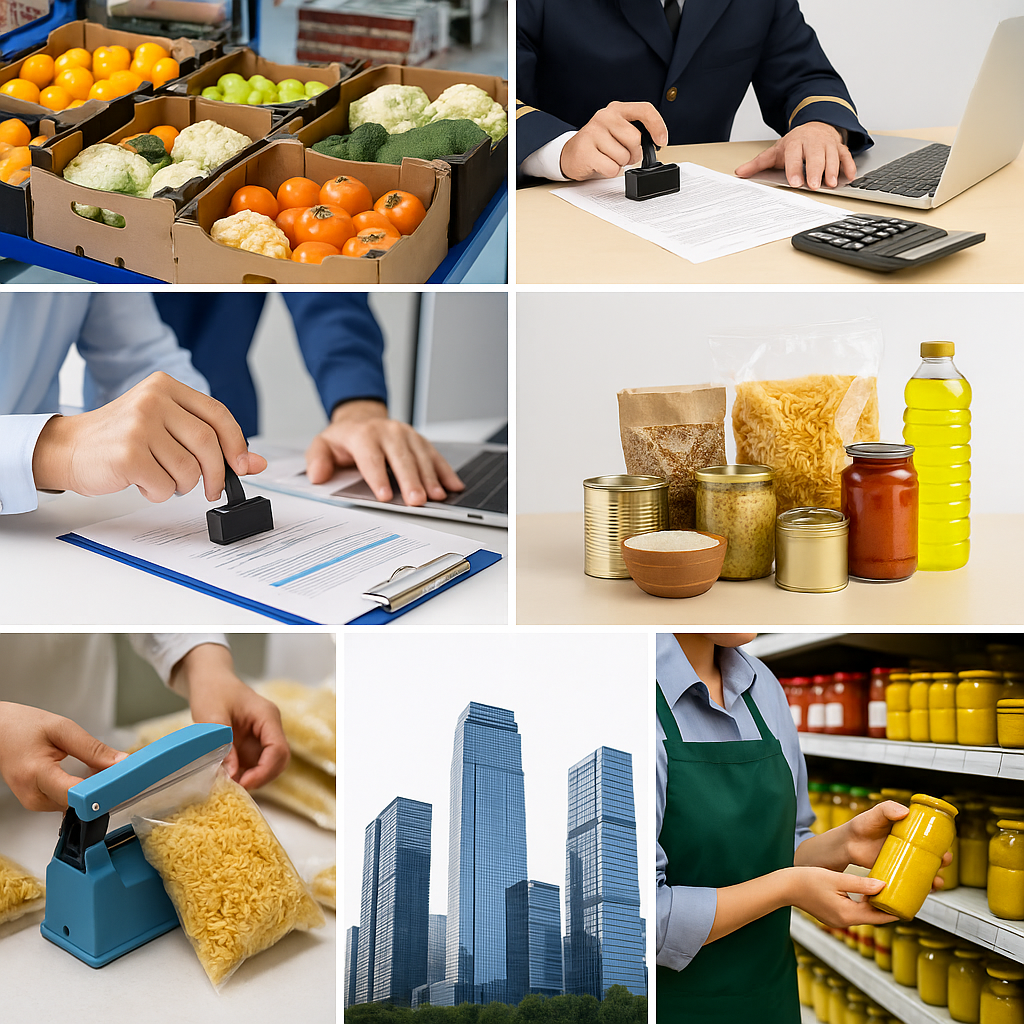
🇸🇦 Importing Food to Saudi Arabia 2025: A Comprehensive Guide to Success and Profitability from Dubai Fridge Store 🌾
In light of economic changes and the increasing trend towards e-commerce , importing food products into Saudi Arabia has become a promising investment opportunity, whether for large traders or even small and medium-sized business owners.
The food market is considered one of the fastest growing and most stable markets in the Kingdom, due to the increasing population, the diversity of consumer tastes, and the high demand for high-quality imported products.
In this comprehensive article from Dubai Refrigerator Store , we review together the most important types of food items required for import, strategies for integrating with the online store, logistical challenges, savings opportunities, and health standards that will ensure the success of your project in 2025.
🌾 What types of food are currently preferred for import due to increased demand?
Understanding the Saudi market is key to success for any importer. Certain products are experiencing increasing and consistent demand due to dietary habits and purchasing culture in the Kingdom.
🔸 1. Rice and vegetable oils:
At the top of the list of most sought-after food commodities in Saudi Arabia, Indian basmati rice and Malaysian and Turkish oils represent ideal choices for importers.
🔸 2. Premium coffee and dates:
With the growing culture of cafes and attention to coffee quality, the demand for Colombian coffee, Yemeni coffee, and high-quality canned dates has increased.
🔸 3. Canned goods and juices:
Ready-made products such as tomato sauces, natural juices, and instant products have become essential in the lives of Saudi consumers.
🔸 4. Organic and healthy products:
In 2025, health became a priority, leading to significant growth in organic, preservative-free products.
🔸 5. Dried dairy products and grains:
Saudi Arabia consumes huge quantities of powdered milk, oats, and nuts , which are materials that can be easily imported with a high profit.
💡 Tip from Dubai Refrigerator Store:
Make sure to regularly monitor Saudi market trends through reports from the Ministry of Commerce and the Food and Drug Authority to identify the most in-demand products annually.
🛒 How to integrate food imports with your online store to achieve maximum sales?
In the era of digital transformation, combining importing and e-commerce has become a smart move to increase sales and reach a wider audience.
✨ Ideal steps for blending:
- Start by creating a professional online store that displays imported food products with clear categorization and high-quality images.
- Use digital marketing strategies via search engines and social media platforms to target buyers in Saudi Arabia and the Gulf.
- Provide wholesale and retail purchasing options through your website to meet all customer categories.
- Use secure electronic payment systems like Tappy and Tamara to attract more customers.
- Use your imported inventory to offer seasonal promotions and discounts that encourage repeat purchases.
📦 Dubai Refrigerator Store is a successful example of this integration; it combines importing original food products and providing them through a comprehensive online store that serves all regions of the Kingdom quickly and reliably.
🚚 What are the main logistical challenges of importing food into the Middle East?
Success in this field requires a thorough understanding of the challenges you may face during international transport, storage, and shipping .
🔹 1. Shipment delays:
Some countries may experience customs delays or congested ports, so choose carriers with a reliable track record.
🔹 2. Storing perishable materials:
Food products require precise temperatures during transport and storage.
Use refrigerated warehouses that are FDA approved.
🔹 3. Variable transportation costs:
International shipping rates are affected by fuel fluctuations and seasons, so plan for a backup budget.
🔹 4. Customs complexities:
Every country has different laws regarding the importation of food products, and these must be strictly adhered to in order to avoid fines.
💡 Tip from Dubai Refrigerator Store:
Rely on Saudi and Gulf shipping companies with experience in food, and make sure that all health certificates are certified before shipping.
💸 How can you benefit from trade agreements and reduced customs duties when importing food?
Saudi Arabia is part of several regional trade agreements that allow the import of food products with reduced or zero customs duties in some cases.
📊 Ways to benefit:
- Import from GCC countries to take advantage of full customs exemptions.
- Follow the free trade agreements between Saudi Arabia and countries such as Singapore and India.
- Take advantage of the "trade facilitation" initiatives offered by Saudi Customs.
🪴 Practical example:
An importer of rice or spices from the UAE or Bahrain can save approximately 10–15% on customs costs through these agreements.
🍱 What is the difference between importing fresh food and importing canned products?
The main difference between the two types lies in the shelf life and the requirements for transportation and storage .
🥦 Fresh produce:
- You need express air freight or specialized refrigerated containers.
- Accurate health examination certificates are required.
- The storage period is very limited.
🥫 Canned products:
- They are stored for longer periods.
- Lower transportation costs.
- More flexible in distribution and sales.
🧊 Tip from Dubai Refrigerator Store:
Start with canned and dried products such as coffee, rice, and juices, then gradually move to fresh ones after gaining experience.
🧾 How can you ensure that imported food products meet health and brand standards?
The Saudi Food and Drug Authority (SFDA) imposes strict standards on imported food.
Here are the most important points that guarantee acceptance through customs without rejection or delay:
✅ Obtain a health certificate from the country of origin.
✅ Make sure there is a clear expiry date in both Arabic and English.
✅ Adhere to food packaging standards.
✅ Use a sticker that accurately displays nutritional information and ingredients.
✅ Make sure the product is not on the block list.
📌 Information from Dubai Refrigerator Store:
Our imported food products undergo rigorous quality testing and packaging that conforms to Saudi and international standards.
🏬 What are the best wholesale markets for imported food in the Gulf?
The Gulf markets are characterized by the diversity of their sources and the availability of huge distribution centers, most notably:
- Jeddah Central Food Market 🇸🇦
- Dubai Trade Food Market 🇦🇪
- Industrial area in Dammam and Khobar
- Manama Food Market 🇧🇭
- Jebel Ali Free Zone 🇦🇪
💰 These centers are ideal starting points for distributors and wholesalers in Saudi Arabia and the Gulf.
Dubai Refrigerator Store relies on suppliers from these markets to provide high-quality products at competitive prices.
🤝 How to choose foreign food suppliers and sign successful import contracts?
Choosing the right supplier is the foundation of your business project.
📦 Tips for choosing the ideal supplier:
- Examine the company's history and business records.
- Request samples before signing contracts.
- Use trusted brokers or reliable platforms such as Alibaba or Tradewheel.
- Make sure there are clear guarantees for quality and delivery.
- Negotiate prices based on the volume of future orders.
💡 From the experiences of Dubai Refrigerator Store:
Dealing with suppliers who have official agents in Saudi Arabia facilitates legal follow-up and reduces shipping and quality problems.
💰 What is the actual cost of importing food products to Saudi Arabia? (Shipping + Customs + Storage)
The cost depends on several factors, but here's an estimated overview of the most important items:
- 📦 International shipping: From 2000 to 6000 riyals per container depending on the country.
- 🧾 Customs duties: between 5% and 15% depending on the type of goods.
- 🏢 Storage and refrigeration: Approximately 1000 riyals per container per week.
- 📃 Certificates and licenses: 500–1500 riyals per shipment.
📈 Tip from Dubai Refrigerator Store:
The larger the quantity and the longer the contracts, the lower the total cost per unit by up to 30%.
💬 Frequently Asked Questions (FAQ) section
❓ What is the best country to import food products to Saudi Arabia?
India and Turkey are among the best countries due to the variety and high quality of their products.
❓ Can individuals import small quantities?
Yes, provided that the Food and Drug Authority's requirements are met, especially for canned products.
❓ How can I guarantee a quick profit from an import project?
Start with high-demand products such as rice and coffee, and target wholesale and online stores.
❓ What is the expected delivery time for shipments?
It ranges from 15 to 45 days depending on the type of shipping and the country of origin.
❓ Where can I buy wholesale food products within Saudi Arabia?
From Dubai Refrigerator Store , which provides original food products wholesale and retail with fast and safe delivery in all regions of the Kingdom of Saudi Arabia 🇸🇦.
🌟 Summary
Entering the world of food imports in Saudi Arabia in 2025 is a promising and guaranteed success project for those who plan intelligently and choose reliable suppliers.
Start with a small step, gradually expand your business, and focus on quality, as the Saudi market welcomes any product that meets consumer needs with confidence and credibility.
🛒 With Dubai Refrigerator Store , you can get the best wholesale and retail food products at competitive prices and guaranteed quality.
Start your business journey with confidence — Dubai Fridge is your premier partner in the world of food and success. 🌾🇸🇦
